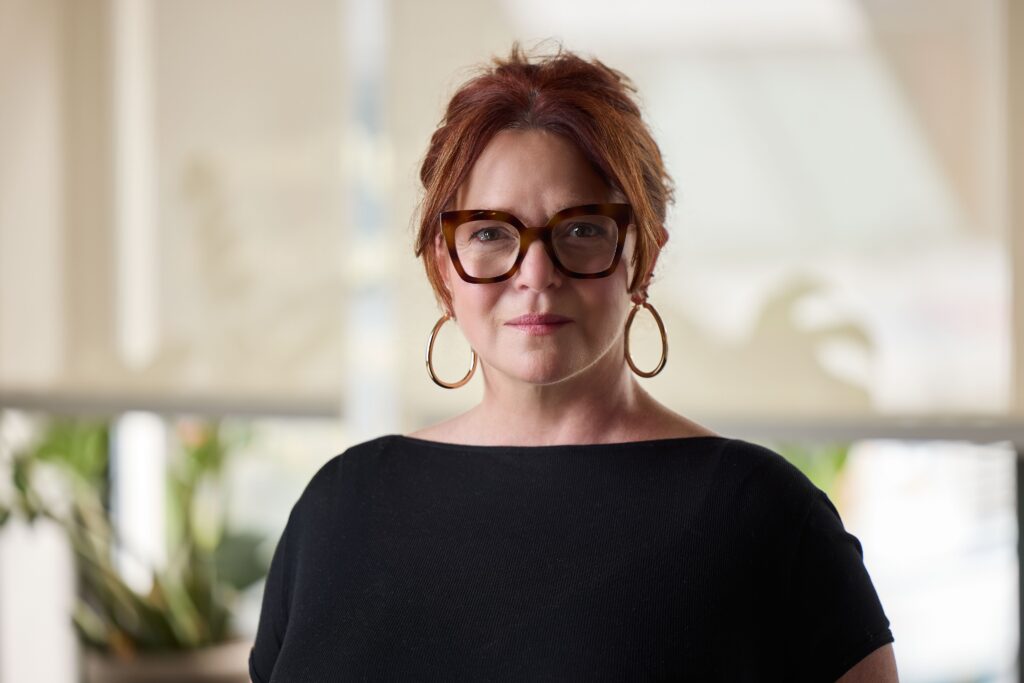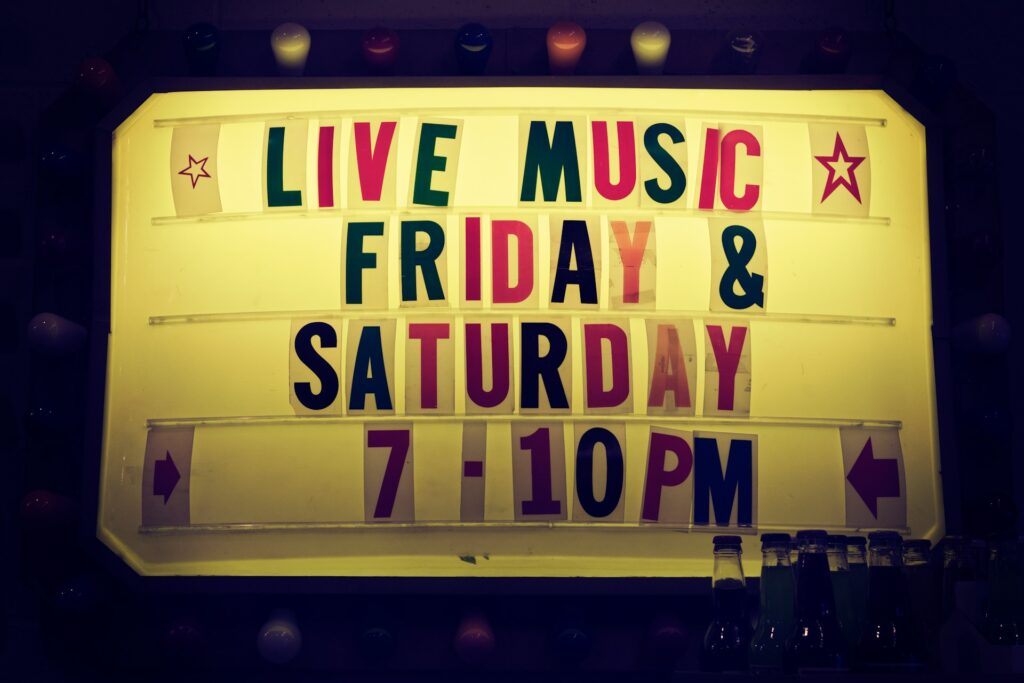Our firm recently welcomed entertainment lawyer Lisa Whynot to our music law team. She sat down with our office manager, Erin Moskal, for an engaging conversation about her journey into the world of entertainment law. This blog follows their discussion:
ERIN: Can you tell us a little bit about your background and what led you to become an entertainment lawyer?
LISA: Music and books were everything to me, other than my family, when I was growing up. From an early age, I knew I wanted to be a lawyer. My grandfather started telling me I was going to be a lawyer when I was super young because I argued with him about everything—and I was usually right, too!
My love for music paired perfectly with my career aspirations. In law school, I was inspired by the idea of helping artists get music, and books, and film out into the world. I feel very strongly that art saves lives and brings people together.
ERIN: That’s great! At what point in your life would you say you had decided that you wanted to be a lawyer?
LISA: It was always there. There was a brief time when I thought I might be a doctor, but for several reasons, it always came back to law.
Throughout my university career, I worked in bars and started to get to know more and more artists and their teams; so, when I moved to Toronto from the east coast, I already had my toe in the music scene.
Then I met my now husband who is a professional musician. After knowing him just a few weeks he asked me to review a contract, and the rest is history.
Not one person from my past university years was at all surprised by where I have ended up in my career.
ERIN: How did you break into entertainment law? It’s seems to be a niche and difficult practice area to enter.
LISA: I was really blessed. After my second year of law school, I got one of those coveted positions on Bay Street to be a summer student. I worked with Blake, Cassels & Graydon, and they had both a sports and entertainment division and a media division.
When I articled, I had to do four practice areas, and I got hired back to work in the sports and entertainment division, which was fantastic.
ERIN: That sounds like a perfect opportunity!
LISA: It was, but there’s an interesting twist. I went backpacking for the summer, and when I came back, for various reasons, that part of the practice was no longer viable. They saved me a position in mergers and acquisitions, which many people coming out of law school would have died for. I, however, hated it with every ounce of my being. That said, I believe that experience, coupled with the various practice areas I worked in while articling, made me a better contract negotiator, which is really at the core of what most entertainment lawyers do.
ERIN: What advice would you give to aspiring entertainment lawyers?
LISA: If you have an opportunity to work with a firm that allows you to participate in or watch contract negotiation, that is key.
Do a lot of self-learning about the entertainment business and entertainment law in particular. Research what the challenges that are facing the entertainment business in both Canada and the US and know how each country is dealing with those challenges. Learn about territory specific issues, for example, in Canada, if you want practice in the film and TV sphere, it’s important to know about tax credits.
Network as much as possible—join every organization you can, go to shows, attend movie events, and engage on social media. Learn everything you can because, ultimately, it often comes down to somebody giving you a break.
ERIN: So basically, being active, showing interest and enthusiasm, and making connections can set you on the right path?
LISA: Exactly. It’s going to take work, and sometimes it’s getting the right break at the right time, but that’s the best advice I can give to newcomers.
Consider volunteering or getting a job that is in the entertainment industry even if it is not entertainment law. I booked bands in law school, so when I moved to Toronto after law school, even though I was working on Bay Street, I knew a lot of key players in the music industry.
ERIN: What types of clients do you typically work with in the music industry?
LISA: I’ve worked with everyone from artists to producers to mixers. I’ve worked with labels; I even worked in-house at a label. I’ve worked with publishers and companies who wish to license music for film and TV. When legitimate digital music providers first launched, I advised a company that was assisting digital service providers trying to license the catalogs of the major labels.
I’ve even worked with advertisers looking to license music for advertisements or brand deals.
Essentially, I’ve worked with anybody and everyone that either creates music, distributes music, or licenses music.

Join Our Community
Be the first to read new articles, industry news, and more. Sign up to our newsletter today!
ERIN: How has the digital age impacted entertainment law?
LISA: It’s opened doors to access for filmmakers, podcasters, and musicians that might not have otherwise had access to the distribution channels that existed prior to the digital age. It has increased opportunities in that respect.
It has also been an amazing tool in the creation of music, audio visual content, podcasts; all aspects of the creative arts. It has also made collaboration easier; when I entered the industry, ZOOM and FaceTime didn’t exist, and Skype was still very choppy for even simple conversations. I can now watch my husband pull up a recording session on his laptop and allow a producer in a different city, or even country, to access the session at the same time so the can collaborate that way. It is amazing.
That said, because streaming, in particular, pays so little, to use an economic term (as when economists say the middle class is disappearing), you’re seeing the “middle class” of artists disappear. They can’t afford to be full-time musicians or songwriters. So, you have the “upper class” of superstars making a lot of money and everyone else is fighting for scraps. For those who are not seeing billions of streams of their music, it is almost as if music is becoming just an advertising tool for selling tickets to shows and merchandise.
Now we are entering into a fight regarding generative AI. While there are definitely different tools that can assist in the creation of content, and collaboration (neither of which falls into the category of generative AI), we have to ensure that creators of art are protected and content created by humans is not fully replaced by content created by computers, and that rights holders are given the opportunity to consent and be compensated for use of their content in the training of AI.
ERIN: But doesn’t social media help with promotion and access to the industry?
LISA: It can. With respect to the music industry, if you look at Justin Bieber or Shawn Mendes or The Weeknd, they were discovered by YouTube. But those stories are few and far between.
The reality is that labels, and publishers, and licensees of music, want to see millions of followers if social media is going to be a factor in their entering into business with an artist; it is not a matter of going out there and seeing what is good. There is far too much content for a company to be able to sift through it all to find hidden gems to develop from the ground up.
This insightful conversation highlights not only Lisa’s passion for music but also her commitment to supporting artists through the complexities of entertainment law. We’re excited to have her on board!
© 2024 Edwards Creative Law, LLP
Updated to November 11, 2024
Edwards Creative Law is Canada’s Entertainment Law Boutique™, providing legal services to Canadians, and international clients who partner with Canadians, in the Film & Television, Music, Video Games and Apps, Publishing and Literary industries.
For more information or to set up a minute Discovery Call with one of our entertainment lawyers please feel free to Contact Us.
* This blog is for general informational purposes only and is not to be construed as legal advice. Please contact Edwards Creative Law or another lawyer, if you wish to apply these concepts to your specific circumstances.
Check out our popular blog posts:
Neighbouring Rights in Canada – Being a Musician is a Business
Setting up a Music Publishing Company in Canada
Copyright Protection & Classical Music
Work Made for Hire Explained
10 Co-Production Considerations in Canada – Ask an Entertainment Lawyer
Film Profits & Points – Ask an Entertainment Lawyer
The “Just Trust Me” Legal Agreement
Learn more about our services:
Film and Television Law
Music Law
Video Game and App Law
Publishing and Literary Law
Employment Law
Dispute Resolution and Litigation Law
Corporate Law
International Services







